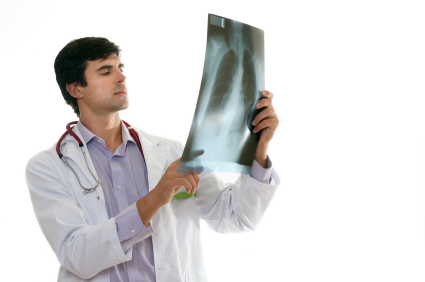 Another article looking at the importance of vitamin D in patients with asthma has just been published in Annals of Allergy, Asthma, and Immunology.
Another article looking at the importance of vitamin D in patients with asthma has just been published in Annals of Allergy, Asthma, and Immunology.
The authors, MS Sandhu and TB Casele, point out that evidence suggests that vitamin D deficiency is associated with lung airway over-responsiveness, worse asthma control, and possibly resistance of asthma patients being able to respond to steroid treatment.
They point out that the cells in the lung show high amounts of the enzyme necessary to convert vitamin D to the activated vitamin D within the lung.
This activated vitamin D has been shown to inhibit the manufacture of certain molecules that promote inflammation in the lung. Therefore having sufficient vitamin D would contribute to less lung inflammation, which is the cause of asthma.
They also point out that vitamin D in the lung helps manufacture several natural anti-infective molecules that can help prevent infections, like bronchitis.
[Read more…]


 I was recently interviewed about the role of vitamin D in depression. When the article comes out I will post a link on my blog.
I was recently interviewed about the role of vitamin D in depression. When the article comes out I will post a link on my blog.
 The standard message for patients with vitamin D deficiency is that everyone can take vitamin D unless they have a granulomatous condition (for example tuberculosis or sarcoidosis), or a lymphoma.
The standard message for patients with vitamin D deficiency is that everyone can take vitamin D unless they have a granulomatous condition (for example tuberculosis or sarcoidosis), or a lymphoma. A new study shows a possible link between vitamin D deficiency and a pregnancy condition called preeclampsia.
A new study shows a possible link between vitamin D deficiency and a pregnancy condition called preeclampsia. All of my pregnant patients take a prenatal vitamin based on what would be best for the developing fetus. I have even found a prenatal vitamin that I like so much that I put my own private label on it.
All of my pregnant patients take a prenatal vitamin based on what would be best for the developing fetus. I have even found a prenatal vitamin that I like so much that I put my own private label on it. All pregnant women are given a prenatal vitamin by their obstetrician. The implication is that what is in the prenatal is all the extra vitamins that a pregnant mother needs for herself and her fetus.
All pregnant women are given a prenatal vitamin by their obstetrician. The implication is that what is in the prenatal is all the extra vitamins that a pregnant mother needs for herself and her fetus. I have accepted an opportunity to teach medical students at the prestigious David Geffen School of Medicine at UCLA, starting this September.
I have accepted an opportunity to teach medical students at the prestigious David Geffen School of Medicine at UCLA, starting this September. Most people believe that acupuncture is just for pain control. In fact it is an active medical modality which I use to treat almost all medical problems. Now a new study shows that acupuncture can help people with heart disease.
Most people believe that acupuncture is just for pain control. In fact it is an active medical modality which I use to treat almost all medical problems. Now a new study shows that acupuncture can help people with heart disease. Studies by Garland and other medical researchers have shown the tremendous economic cost of vitamin D deficiency in America. For example, studies published in 2004 estimated that vitamin D deficiency costs the United States from $40-$56 billion annually. It is estimated that every year there are 60,000 premature deaths from cancer caused by insufficient vitamin D in the United States.
Studies by Garland and other medical researchers have shown the tremendous economic cost of vitamin D deficiency in America. For example, studies published in 2004 estimated that vitamin D deficiency costs the United States from $40-$56 billion annually. It is estimated that every year there are 60,000 premature deaths from cancer caused by insufficient vitamin D in the United States.


